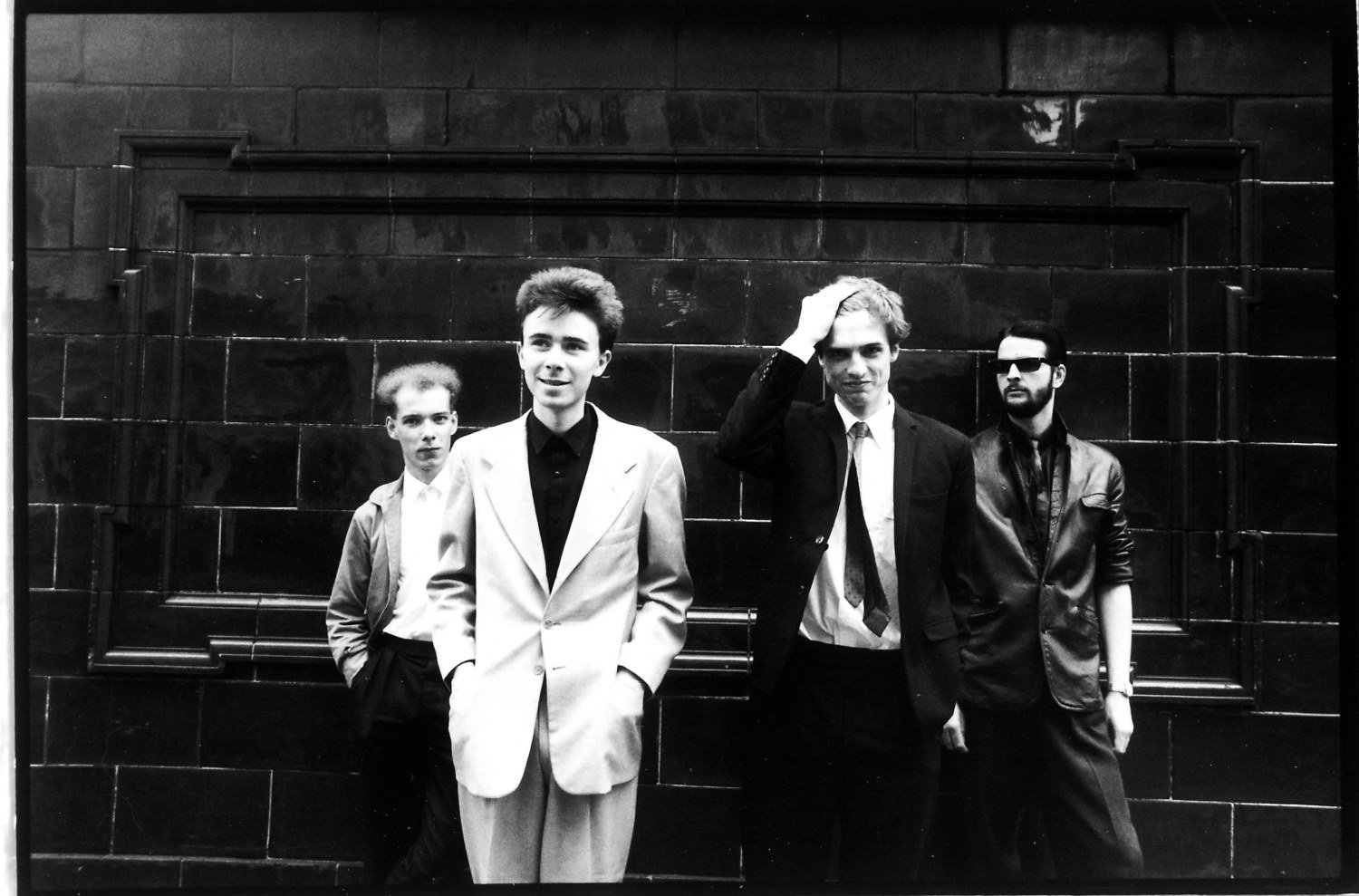Josef K

There needed to be a gloomy remotely intimate glam pop group named after a character created by Franz Kafka who detuned their pained, pining guitars like the Velvet Underground, who screwed up dance beats with as much nimble knowingness and/or amateurish exuberance as Devo, who faced up to long lasting reality with as much sad, mad grace as Magazine, who got stuck into logic as defiantly as Pere Ubu, who had spent a lot of time watching Television and listening to the first six or seven songs...
There needed to be a gloomy remotely intimate glam pop group named after a character created by Franz Kafka who detuned their pained, pining guitars like the Velvet Underground, who screwed up dance beats with as much nimble knowingness and/or amateurish exuberance as Devo, who faced up to long lasting reality with as much sad, mad grace as Magazine, who got stuck into logic as defiantly as Pere Ubu, who had spent a lot of time watching Television and listening to the first six or seven songs written by Buzzcocks.
At the end of the 1970s, after punk rock had to some extent realigned British musical history and established urgent new priorities, there just had to be something, somewhere at the rainy edge of reason. Something that was christened The Sound of Young Scotland, together with Orange Juice, whose guitars were also radiant and brittle, whose rhythms were also scrubbed and blunt, whose vocals were also proud and serious, but who sounded like another group completely. They played desolate, fidgety songs by David Bowie, Talking Heads and Television that could have belonged to a dry, extravagant musical based on the definitively alienated life of Josef K, cerebral, visceral songs that were filtered through the newly minted post-punk attitude that clich?s murdered inspiration. They took themselves very seriously whilst circling the idea that fun was a very peculiar notion. They wore suits, even ties ? fastidiously peeling away from the leather, pins and gunk of the trad punk look – and their pale, trim and amused, vaguely guilt ridden lead singer Paul Haig was a ghostly hint of a non-existent mod Samuel Beckett who played double bass in 60s Paris for a visiting Sonny Rollins.
Josef K and Orange Juice were both operating high above England, tense and certain, cool and fraught, closer in a way to New York and Detroit than London. They were on the cusp between the 70s and the 80s, closer in a way to the 60s and the 21st Century. Nearly everyone ignored Josef K, including ultimately themselves. But they were right all along. They wrote prickly, plaintive pop songs that were the sound of depressed young men having lethargic tantrums about the mysteriously inevitable everyday. They added something new to the possibility of pop, combining that which needs to be leisurely interpreted with a quick, sensational celebration of the moment that just needs to be taken, prized, and thrown away. A touch more rational. A little less glaring. A splinter less uptight. Lacking, perhaps, the art for art’s sake element that some of us swooned over, and which we see explicitly echoed in the way, say, the popular Franz Ferdinand express themselves.